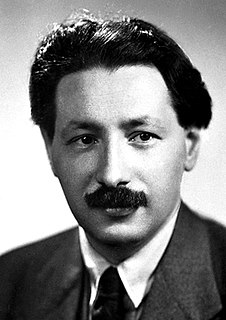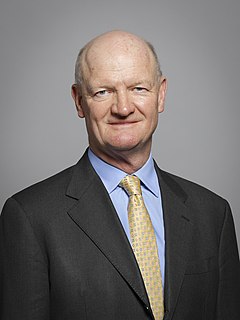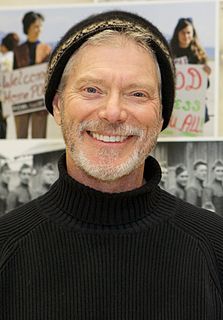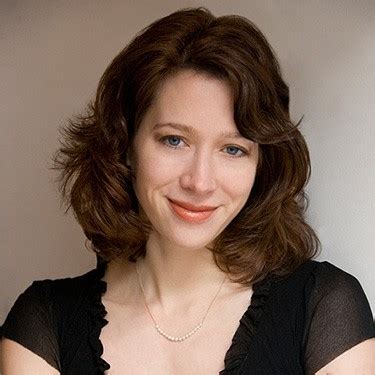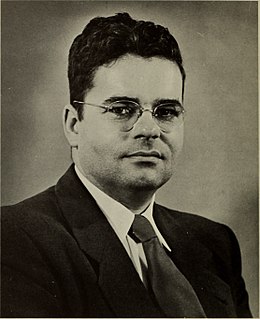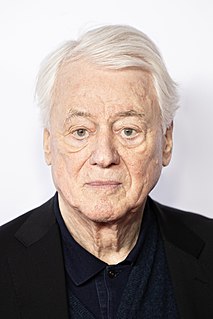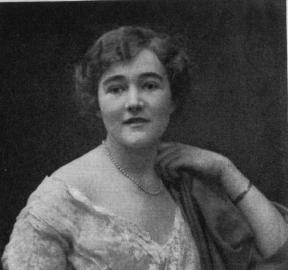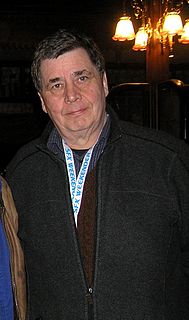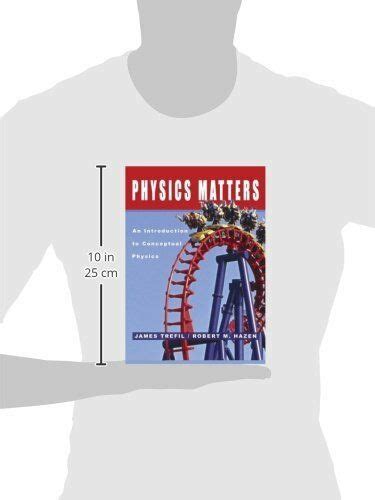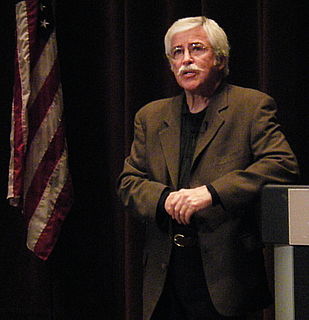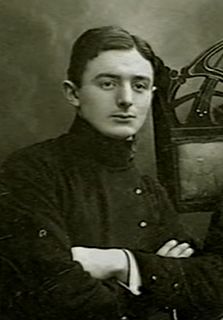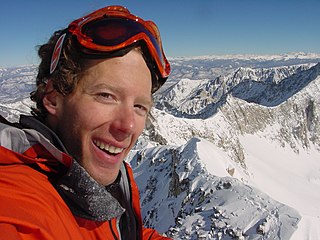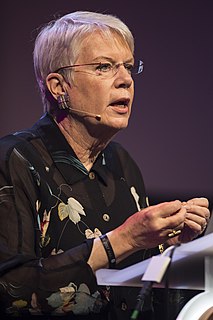Top 211 Telescope Quotes & Sayings - Page 3
Explore popular Telescope quotes.
Last updated on April 17, 2025.
Ironically, it is only when disaster strikes that the shuttle makes the headlines. Its routine flights attracted less media interest than unmanned probes to the planets or the images from the Hubble Telescope. The fate of Columbia (like that of Challenger in 1986) reminded us that space is still a hazardous environment.
There is a field where all wonderful perfections of microscope and telescope fail, all exquisite niceties of weights and measures, as well as that which is behind them, the keen and driving power of the mind. No facts however indubitably detected, no effort of reason however magnificently maintained, can prove that Bach's music is beautiful.
It has only been within my lifetime that asteroids have been considered a credible threat to our planet. And since then, there's been a focused effort underway to discover and catalog these objects. I am lucky enough to be part of this effort. I'm part of a team of scientists that use NASA's NEOWISE telescope.
There are many ways in which people are made aware of their power to believe in the supremacy of Divine guidance and power: through music or visual art, some event or experience decisively influencing their life, looking through a microscope or telescope, or just by looking at the miraculous manifestations or purposefulness of Nature.
That which men suppose the imagination to be, and to do, is often frivolous enough and mischievous enough; but that which God meant it to be in the mental economy is not merely noble, but supereminent. It is the distinguishing element in all refinement. It is the secret and marrow of civilization. It is the very eye of faith. The soul without imagination is what an observatory would be without a telescope.
But they had, perversely, been living among people who were peering into the wrong end of the telescope, or something, and who had convinced themselves that the opposite was true - that the world had once been a splendid, orderly place...and that everything had been slowly, relentlessly falling apart ever since.
One of the things that always fascinated me about the Renaissance was that it was a time both of great scientific discovery and also of superstition and belief in magic. And so it was a period in which Galileo invented the telescope, but also a time when hundreds were burned at the stake because people thought they were witches.
Some things mankind can finish and be done with, but not ... science, that persists, and changes from ancient Chaldeans studying the stars to a new telescope with a 200-inch reflector and beyond; not religion, that persists, and changes from old credulities and world views to new thoughts of God and larger apprehensions of his meaning.
At times the [radio telescope] records exhibited a feature characteristic of interference, occurring some time later than the passage of the two known sources. This intermittent feature was curious, and I recall saying once that we would have to investigate the origin of that interference some day. We joked that it was probably due to the faulty ignition of some farm hand returning from a date.
The Bible is the light of my understanding, the joy of my heart, the fullness of my hope, the clarified of my affections, the mirror of my thoughts, the consoler of my sorrows, the guide of my soul through this gloomy labyrinth of time, the telescope went from heaven to reveal to the eye of man the amazing glories of the far distant world.
"I think I know the real reason." "Which is?" "Alcohol in the dust clouds. Goddamn stuff is everywhere. Any lousy species ever invents the telescope and the spectroscope and starts looking in between the stars, what do they find?" He knocked the glass on the table. "Loads of stuff, but much of it alcohol." He drank from the glass. "Humanoids are the galaxy's way of trying to get rid of all that alcohol."
I wish, my dear Kepler, that we could have a good laugh together at the extraordinary stupidity of the mob. What do you think of the foremost philosophers of this University? In spite of my oft-repeated efforts and invitations, they have refused, with the obstinacy of a glutted adder, to look at the planets or the Moon or my glass [telescope].
The lessons of science should be experimental also. The sight of a planet through a telescope is worth all the course on astronomy; the shock of the electric spark in the elbow outvalues all theories; the taste of the nitrous oxide, the firing of an artificial volcano, are better than volumes of chemistry.
The strongest signals leaking off our planet are radar transmissions, not television or radio. The most powerful radars, such as the one mounted on the Arecibo telescope (used to study the ionosphere and map asteroids) could be detected with a similarly sized antenna at a distance of nearly 1,000 light-years.
Great question in science - questions like the ones Herschel raised about the structure of the universe - are seldom answered by ivory-tower types engaging in pure thought. They are answered by people who are willing to get down into the trenches and grapple with nature. If that means casting your own telescope mirrors, as Herschel did, so be it.
Religion has run out of justifications. Thanks to the telescope and the microscope, it no longer offers an explanation of anything important. Where once it used to able, by its total command of a worldview, to prevent the emergence of rivals, it can now only impede and retard-or try to turn back-the measureable advances that we have made.
Those who would legislate against the teaching of evolution should also legislate against gravity, electricity and the unreasonable velocity of light, and also, should introduce a clause to prevent the use of the telescope, the microscope and the spectroscope or any other instrument of precision which may in the future be invented, constructed or used for the discovery of truth.
I've got a telescope in my garden and one of the things I love to do is go out and let the sky, the night sky, the galaxies, the Orion nebula, have an impact on my mind. I find that awe inspiring. And just to contemplate on what the astronomers have revealed to us about the immense size and so on of the universe. I find that very healthy. And it's a good thing to do.
I wanted to understand things and then be free of them. I needed to learn how to telescope things, ideas. Things were too big to see all at once, like all the books in the library-everything laying around on all the tables. You might be able to put it all into one paragraph or into one verse of a song if you could get it right.
There are some things we do much better than computers, but since most of chess is tactically based they do many things better than humans. And this imbalance remains. I no longer have any issues. It's bit like asking an astronomer, does he mind that a telescope does all the work. He is used to it. It is just an incredible tool that you can use.
Our eyes see very little and very badly – so people dreamed up the microscope to let them see invisible phenomena; they invented the telescope...now they have perfected the cinecamera to penetrate more deeply into the visible world, to explore and record visual phenomena so that what is happening now, which will have to be taken account of in the future, is not forgotten.
It was more work than it seemed, looking through a telescope, as the Earth was continually moving and you had to move along with it. You don't realize how fast this acutally happens, and it's kind of both creepy and wonderful when you stop to think about it. And it makes you realize there's absolutely no way to avoid change. You can sit there and cross your arms and refuse it, but underneath you, things are still spinning away.
We begin with friendships, and all our youth is a reconnoitering and recruiting of the holy fraternity they shall combine for thesalvation of men. But so the remoter stars seem a nebula of united light, yet there is no group which a telescope will not resolve; and the dearest friends are separated by impassable gulfs.
It will be the mother of all telescopes, and you can bet it will do for astronomy what genome sequencing is doing for biology. The clumsy, if utilitarian, name of this mirrored monster is Large Synoptic Survey Telescope, or LSST. You can't use it yet, but a peak in the Chilean Andes has been decapitated to provide a level spot for placement.
The Hubbell space telescope, it's first year up after they fixed it, categorized and counted 500 billion galaxies in any one photograph field of view of dark matter. That's like grains of sand at the beach and you've just got a handful. It's massive amounts. I'm sure that of all of the galaxies, and I'm sure the universe is teeming with life.
Just as the telescope and microscope show us that there is order and design in all the works of God's hand, from the greatest planet down to the least insect, so does the Bible teach us that there is wisdom, order, and design in all the events of our daily life. There is no such thing as 'chance', 'luck', or 'accident' in the Christian journey through this world.
When asked, "How do you write?" I invariably answer, "One word at a time," and the answer is invariably dismissed. But that is all it is. It sounds too simple to be true, but consider the Great Wall of China, if you will: one stone at a time, man. That's all. One stone at a time. But I've read you can see that motherfucker from space without a telescope.
As we begin the 21st century, the Hubble space telescope is providing us with information about as yet uncharted regions of the universe and the promise that we may learn something about the origin of the cosmos. This same spirit of adventure is also being directed to the most complex structure that exists in the universe - the human brain.
The bottom line is that finding orphan planets - small, faint, and located who-knows-where - is not for the faint of heart. The task is comparable to observing a match flame at the distance of Pluto. The WISE satellite, a hi-tech, space-based infrared telescope especially suited for such work, has found only a few.
Justice based purely on laws is about as accurate as a portrait created out of large low-resolution color pixels. If you stand back far enough it looks good. Come any closer and the glaring approximations overtake all semblance of the original. Justice should be viewable under the microscope, not from a telescope. And for that it needs to be based not on law but on truth.
I can actually build my equipment at the back end of the telescope such that it takes the data from all of the separate antennas and adds the signal together with different time delays and different phase shifts - it's as if I were picking out up to eight individual pixels in this large field of view.
In the field of astronomy in the mid-'60s, quasars were very sexy objects - gigantic, star-like masses about which little was known. I was a graduate research student at Cambridge working towards my Ph.D. and chose quasars as the subject for my thesis. Part of my project involved surveying the sky for them using a radio telescope.








